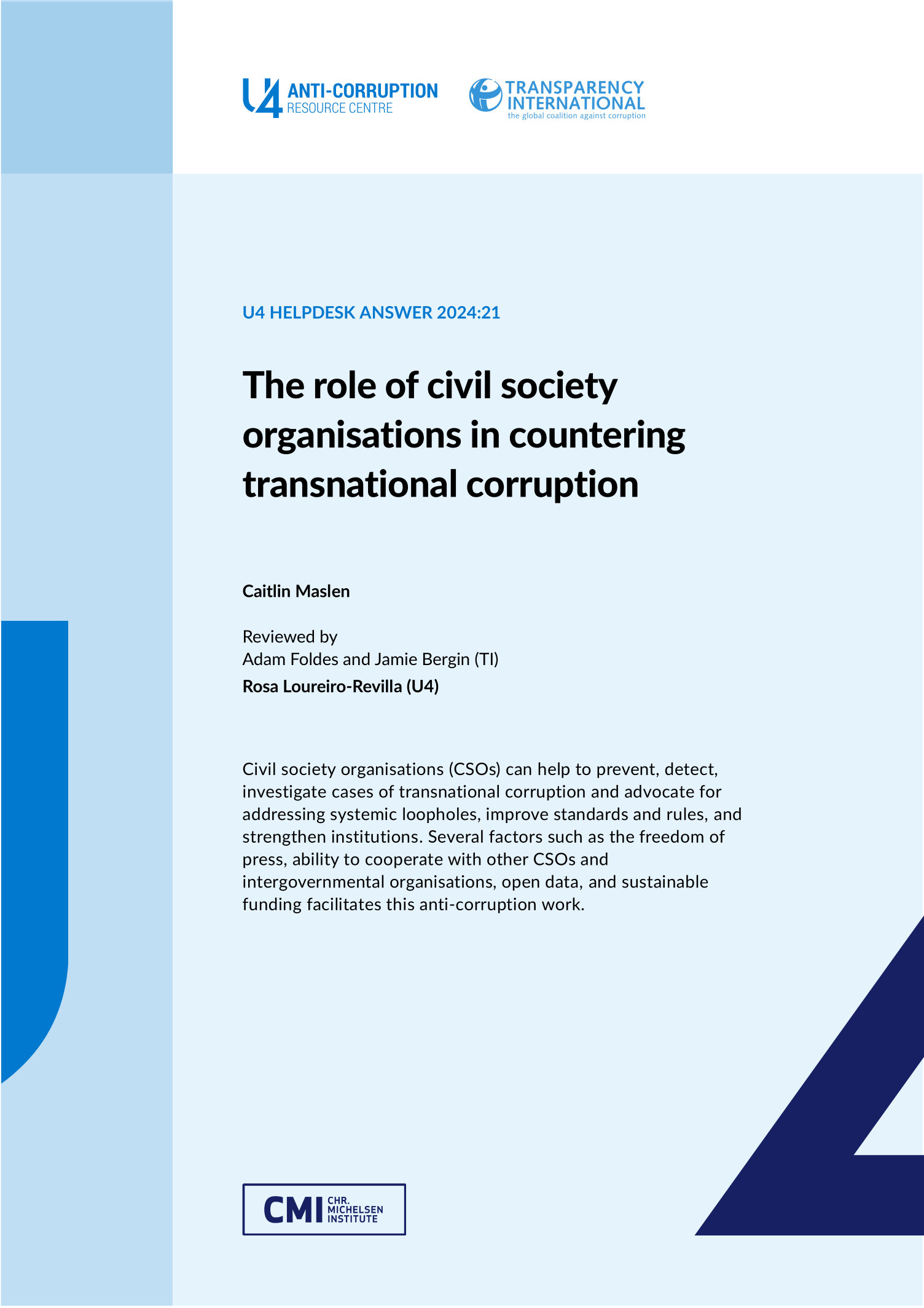Main points
- Civil society organisations (CSOs) have an important role in demanding accountability from governments and serving as a link between citizens and decision-makers.
- As part of measures to counter transnational corruption, CSOs can help to drive policy reform, generate evidence, provide technical expertise and capacity-building and be involved in the investigation and enforcement of transnational corruption cases.
- Some CSOs advocate for change on the standards, rules and practices to curb transnational corruption. Others have published data on corporate ownership and politically exposed persons (PEPs) to support the work of investigative journalists tracking illicit finance.
- Enabling conditions for CSOs to successfully counter transnational corruption include an open civic space, freedom of press for investigative journalists, sustainable funding, open data the opportunity to collaborate with decision-makers, and collaborations of cross-national networks and in-country networks working on anti-corruption.



